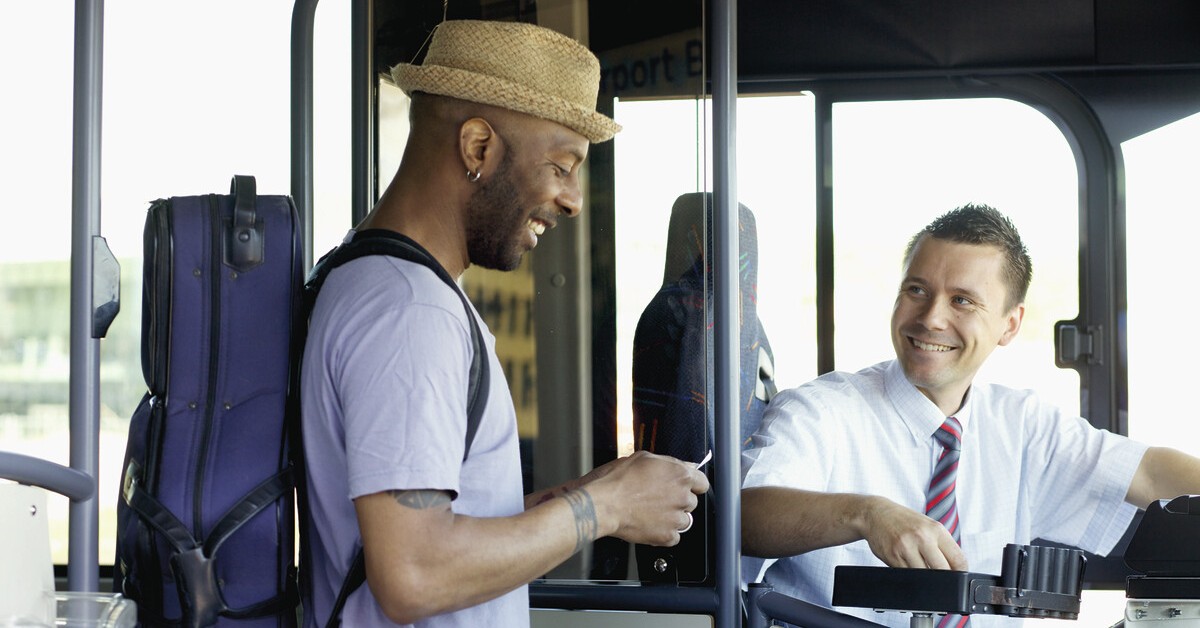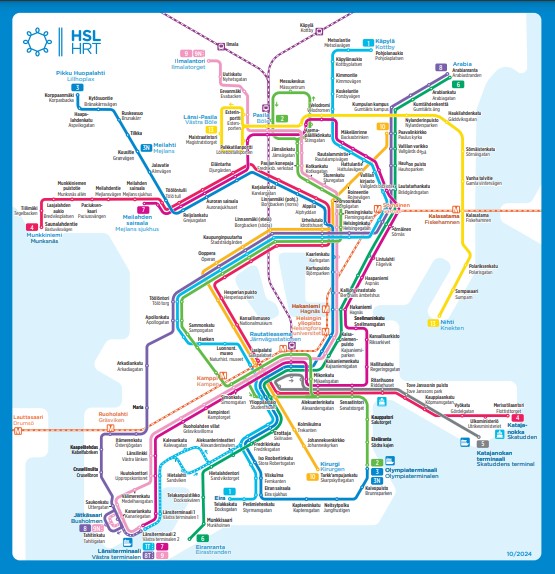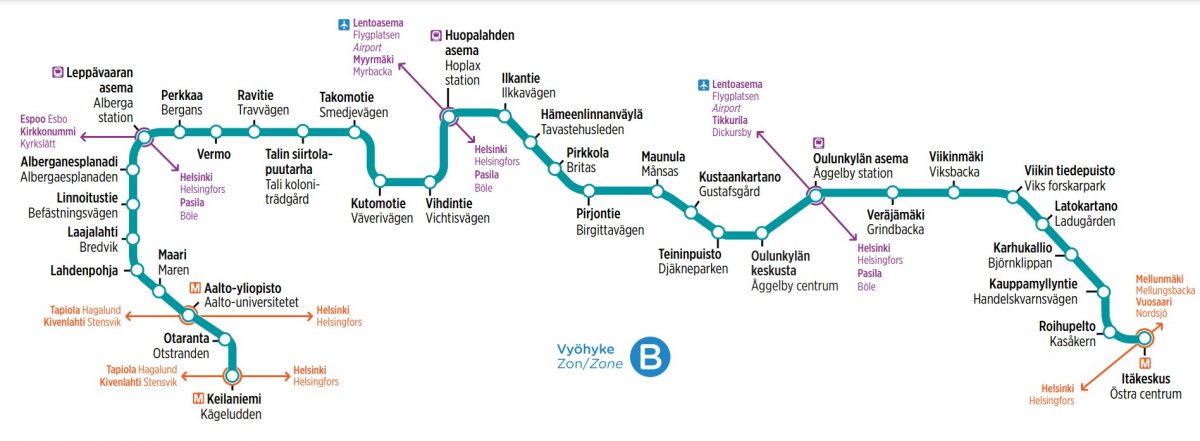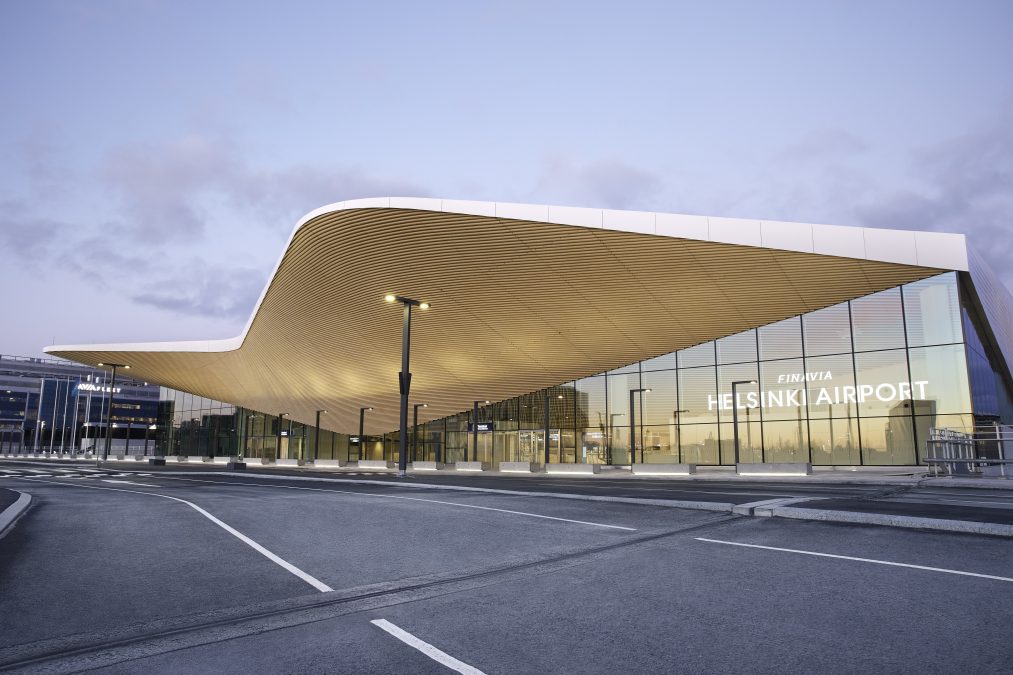Public transport in Helsinki
On this page
- Helsinki Region Transport (HSL)
- HSL app and card
- Buses, trams, metro, commuter trains, city bikes and ferries
- Services to Helsinki Airport

Helsinki’s reliable public transport system is one of the city’s greatest strengths
HSL serves every neighbourhood in the region, meaning that even those living far from the city centre can get around easily without a car. The City of Helsinki actively develops its public transport options in order to support sustainable growth.
Public transport in Helsinki is the preferred mode of transport for Helsinki’s residents. It is efficient, reliable and reasonably priced. Because it offsets the environmental impact of heavy traffic, it is also the most sustainable option. The City of Helsinki hopes to eliminate 69 per cent of greenhouse gas emissions from traffic by the year 2035.
Helsinki Region Transport (HSL)
Helsinki Region Transport (HSL) is the capital city area’s public transport operator. It is in charge of buses, trams, an underground metro service, commuter trains and even city bikes and ferries.
Route information can be found with HSL’s handy online tool, the Journey Planner. After you enter two locations anywhere in the capital area, the planner quickly calculates the best route for you. You can specify what time you wish to depart or arrive, indicate if you use a wheelchair, or if you would prefer a certain mode of transportation. The Journey Planner will then generate a connection to meet your criteria. It even adds in your walking time to and from the stops, so you have a real-time schedule to follow.
HSL app and card
The HSL app is a free application that allows you to plan trips and buy tickets on your mobile phone or other electronic device. Among its many features, it allows you to customize the Journey Planner service. For example, you can set it so it always provides your home or work address by default. The app’s mobile tickets are valid on all modes of public transport in the Helsinki area.
Alternativelly, you can purchase an HSL card at the HSL service point. The HSL card costs EUR 5 at the outset, and can hold either value or a season ticket. Season tickets for public transport in Helsinki have a set price for unlimited travel within a certain period of time, available as a one-off purchase or an auto-renewing subscription. You can top up your HSL card anytime online at no cost.
HSL grants discounts to children, students, pensioners, customers over 70 years of age and people with reduced mobility. Customers with impaired visibility and those that use a wheelchair can use the services for free. Those who are travelling with a child aged between 0 and 6 years in a pram, stroller or bicycle trailer can also travel for free.
If you only need a ticket for a few days, HSL sells day tickets for 1 to 13 days. These tickets are available for purchase on the HSL app, service point and ticket machines.
Buses
Buses are the most widely used form of motorised public transport in the capital area. They serve all neighbourhoods regularly, and nearly all housing units have at least one bus stop within a short walking distance.
If you catch a bus from a stop that is not the first or last on the route, you must stand at the stop and hail the bus (raise your hand, wave if it seems the driver doesn’t see you) if you want the bus to stop for you. You should enter the bus from the front door and either show your ticket or validate your HSL card or ticket with the card reader before you take your seat. Orange trunk route buses are an exception. In these buses, you enter through the middle doors and do not need to use the card reader.
Push the red button near your seat in good time if you plan to get off at the next stop. The bus will only stop if a passenger has pushed the button or someone at the stop has hailed the bus. Bus drivers do not sell tickets or cards onboard; they must be purchased before you enter the vehicle.

Do I always need to show my card or ticket?
The answer is yes for passengers on most buses, but on trams, the metro, commuter trains and orange trunk route buses, it is not necessary to show a valid card or ticket unless an inspector, driver or conductor asks you to do so.

Trams
Public transport within the city centre of Helsinki relies primarily on eleven different tram routes and the underground metro system. The trams work in largely the same way as buses, although you can enter through any door once everyone who wishes to exit has left the car. Safety features prohibit the doors from closing if something is blocking them.
HSL trams use the same card readers as HSL buses. At the busiest tram stops in the city, displays use GPS to show projected arrival times.
Light rail
The new light rail line 15 runs crosstown between the eastern Helsinki district of Itäkeskus and the Espoo district of Keilaniemi in the west. It provides seamless links to the metro, commuter trains, buses, and Park & Ride facilities. It runs every 8 minutes on weekdays.

Metro
The metro, the Helsinki region’s subway or underground system, is a very fast and easy form of public transport. It has two east-west lines that serve 30 stations, linking districts in the eastern part of Helsinki to destinations west of the city. The lines pass under the Kamppi long-distance bus terminal and the Helsinki Central Railway Station, making it easy to transfer to other routes and carriers.
Metro users must be carrying a valid ticket or card after they pass the card readers, often located before the station’s escalators or steps. If you order a ticket on the HSL app, it should be valid on your mobile phone already when you enter this area.
Allow passengers to step off the metro train before you board. A sound will play before the doors close. Metros and commuter trains in Helsinki stop at every stop on their route. Stand on the right side of escalators in the metro network, so people in a hurry can pass you on the left.
Please note that there will be several changes to the Metro services in the summer of 2024 due to renovation work.

Commuter trains
The routes of the Helsinki area’s commuter train services are jointly operated by HSL and VR, the state-owned national railway company. They operate on four branches, three north-south lines and one route to the west. Some of the branches combine in a ring rail line that connects the Helsinki Airport with the city centre. Each route serves the Pasila station. the stop before the final stop at the Helsinki Central Railway Station.
This form of public transport in Helsinki enables people living farther away to get to the city center easily. The trains are environmentally friendly, as they run on electricity and part of their braking energy is fed back into the power grid. Most are low-floor trains with spacious coaches, which makes it easy to travel with assistive devices, bikes and children in prams. There are no seat reservations; passengers are free to sit where they like.
Note that tickets and cards for commuter trains in Helsinki must be purchased beforehand from ticket machines, kiosks or the app. HSL cards allow their holders to use commuter trains within the zone for which the card is valid. Inspectors will remove passengers who have boarded commuter trains without a valid ticket or card.
City bikes
See our section on Cycling in Helsinki to learn more about Helsinki’s excellent and inexpensive bike sharing service.
Ferries to Helsinki’s historic fortress
HSL also operates two ferries to a UNESCO World Heritage site off the coast of Helsinki, the historic sea fortress of Suomenlinna. One ferry leaves from the Helsinki Market Square, while the other is based in Helsinki’s nearby Katajanokka district. Suomenlinna has about 900 permanent inhabitants and 350 people work there year-round, so the HSL ferry service also provides these people with an important regular connection to the mainland.

Services to Helsinki Airport
The P and I commuter trains are the most convenient option connecting the Helsinki Airport with the city centre. The journey on both trains on the loop takes approximately 30 minutes. Several HSL buses also serve the airport, as do many long-distance buses. Taxis are a more expensive option.